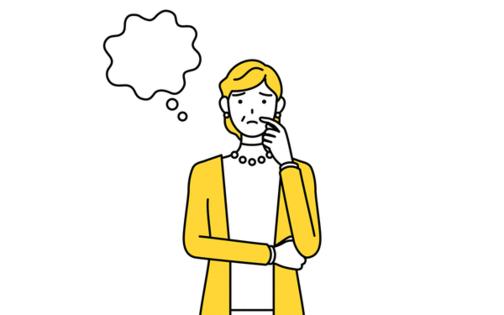Aisha Sultan: What can help middle-age brain fog?
Published in Health & Fitness
I was recently trapped in a perplexing and potentially compromising situation that made me reconsider the impact of middle-aged brain fog.
It began innocently enough with a visit to the pool. When our children were younger, I spent many summer days poolside, watching them splash and go down the twisty slides. Now, nearly the entire summer had passed without a single dip in the water under a warm sun.
It was a glorious late-summer afternoon. I walked in 80-degree water while waning sunshine glistened on the surface. Later, as I walked out of the pool in my burkini (minus the head covering), I congratulated myself on making such a good decision.
Ah, the pride before a fall.
I returned to the locker room to change, and made a last-minute decision to shower there, rather than at home. This is where the outing took a turn.
As I stepped out of the shower, I realized I had forgotten to grab a towel from the rack. Given that this is a family locker room with individual stalls, I could not step out to grab one. I stood there, dripping wet, considering my options.
I had brought in my bag of clothes and discovered a sports bra I didn’t need to wear. I tried to use this small piece of fabric to brush the water off my body. Polyester and spandex are not very absorbent. In my purse, I found a sturdy napkin from a gas station. It disintegrated in my hand as I wiped my face and arms. I also tried shaking my hair as I’ve seen Frankie, my pup, do after he gets a bath.
I just needed to get dry enough so I could put my clothes back on and run out of this place.
I got close enough. When I emerged from the stall, I glared at the rack of towels piled high less than three feet away. The entire locker room was empty, of course.
As I walked out, I couldn’t help but remember the amount of paraphernalia I used to lug when taking two small children to the pool — goggles, spare clothes, snacks, water bottles, sunscreen, sunhats, etc. I managed to pack a tote the size of carry-on luggage for all those trips, and now I couldn’t remember to take a towel to the shower?
This incident comes on the heels of finding it harder to recall names and why I’ve walked from one room to the next. Sometimes, I’ll pause mid-conversation and say, “Just give me a minute; it will come right back to me.”
What is happening to my brain?
As the owner of a sputtering uterus that refuses to quit, I know that brain fog is a common symptom of perimenopause. But the situation at the pool made me turn to the experts.
I follow the work of Selene Yeager, co-author of “Next Level: Your Guide to Kicking Ass, Feeling Great, and Crushing Goals Through Menopause and Beyond,” and host of the podcast “Hit Play, Not Pause.” She also writes a “Feisty Menopause” newsletter.
Many women in perimenopause report memory lapses, poor concentration and mental fatigue, Yeager told me. These changes can be related to fluctuating estrogen levels, sleep disruptions or mood changes. Any or all of these things can affect brain chemistry.
“Everyone thinks they are experiencing early onset dementia,” she said. “It’s helpful to know you aren’t alone in that.”
Yeager said that some women have found relief by using creatine supplements. Some preliminary studies show benefits for short-term memory and reduced mental fatigue.
However, Dr. Becky Lynn believes the jury is still out on using creatine in this way. Lynn is a gynecologist certified as a menopause practitioner by the North American Menopause Society, and also founded Evora Women’s Health, a concierge practice in Creve Coeur.
“It’s probably not harmful,” Lynn said of creatine. “There’s just not enough scientific evidence that every woman should use it for cognitive function.”
She also reassured me that she frequently hears from patients wondering how to deal with memory changes during this time.
“It’s common, and you’re not losing your mind,” she said. Lynn emphasizes getting treatment for sleep disruptions and incorporating regular exercise, especially cardio, into your routine.
The weirdest thing about the menopausal transition is how much guesswork is involved in trying to get relief from the vast array of symptoms that can appear.
I’ve found that being able to laugh about some of these unexpected changes also helps.
I’m going to try creatine and try not to go off the deep end.
©2025 STLtoday.com. Distributed by Tribune Content Agency, LLC.










Comments